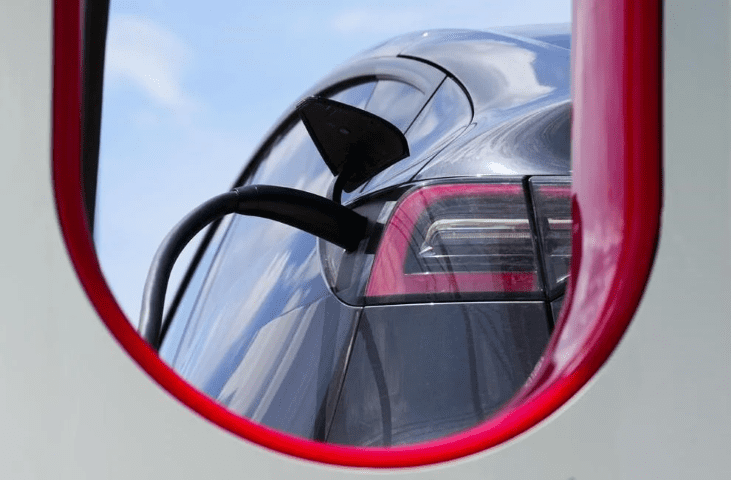
An electric vehicle is charged in Ottawa on Wednesday, July 13, 2022. Auto manufacturers will have three years to start showing a sizable increase in electric vehicle sales as the federal government moves to finalize its new EV mandate this week. THE CANADIAN PRESS/Sean Kilpatrick
Canadian automakers have experienced a record-breaking year in electric vehicle (EV) sales, yet the challenge remains to nearly double these figures within the next three years to align with a newly introduced national mandate. Environment Minister Steven Guilbeault is poised to unveil the conclusive regulations under the Canadian Environmental Protection Act, marking the country's inaugural nationally-regulated EV mandate on Tuesday.
Initiated a year ago by Guilbeault, the mandate sets forth a target, to sell 20 percent of passenger vehicles in Canada must be zero-emission vehicles (ZEVs) by 2026. This percentage is slated to escalate annually, reaching 60 percent in 2030 and culminating at 100 percent in 2035. The finalized regulations are anticipated to be made public by the end of the week, following an extensive consultation process that incorporated input from the public, industry, and environmental stakeholders.
Recent data from Statistics Canada, covering the initial nine months of 2023, revealed that 132,783 new battery-electric or plug-in-hybrid vehicles were registered across the nation, constituting 10.3 percent of total new registrations. Although this reflects a record-breaking figure, it is only half of what is needed by 2026 to meet the initial target. The momentum has been steadily increasing since 2020 when 90,163 zero-emission vehicles were registered, comprising 7.7 percent of total vehicle registrations, up from 5 percent in 2021 and 3.3 percent in 2020.
The forthcoming mandate places the onus on manufacturers rather than dealerships. Manufacturers must demonstrate that a minimum percentage of the vehicles they import or offer for sale in Canada are ZEVs. Excess credits earned can be stored for future use or sold to manufacturers falling short. Alternatively, manufacturers can offset part of the deficit by investing in charging infrastructure.
The draft regulations propose assigning credits to fully electric vehicles and plug-in hybrids based on their range. Post-2026, plug-in hybrids with a range under 50 kilometers would receive no credit, and after 2028, only those with a range exceeding 80 kilometers would qualify. The mandate acknowledges the potential necessity of plug-in hybrids in rural and remote areas, where charging infrastructure may be lacking.
Joanna Kyriazis, director of public affairs for Clean Energy Canada, anticipates that the mandate will prompt auto companies to make EVs more available and affordable in Canada. The institute's analysis suggests that despite higher initial costs, the price difference is recouped within a year due to savings on electricity over gas and lower maintenance fees.
However, the Canadian Vehicle Manufacturers' Association contends that the government must enhance rebates for EV purchases and substantially expand charging infrastructure to instill confidence in consumers. While Quebec and British Columbia have already implemented EV sales mandates, leading in national EV sales, the upcoming national mandate focuses on the overall vehicles sold nationally, rather than within each province. The success of this mandate hinges on a collaborative effort from manufacturers, government incentives, and a growing EV infrastructure.















